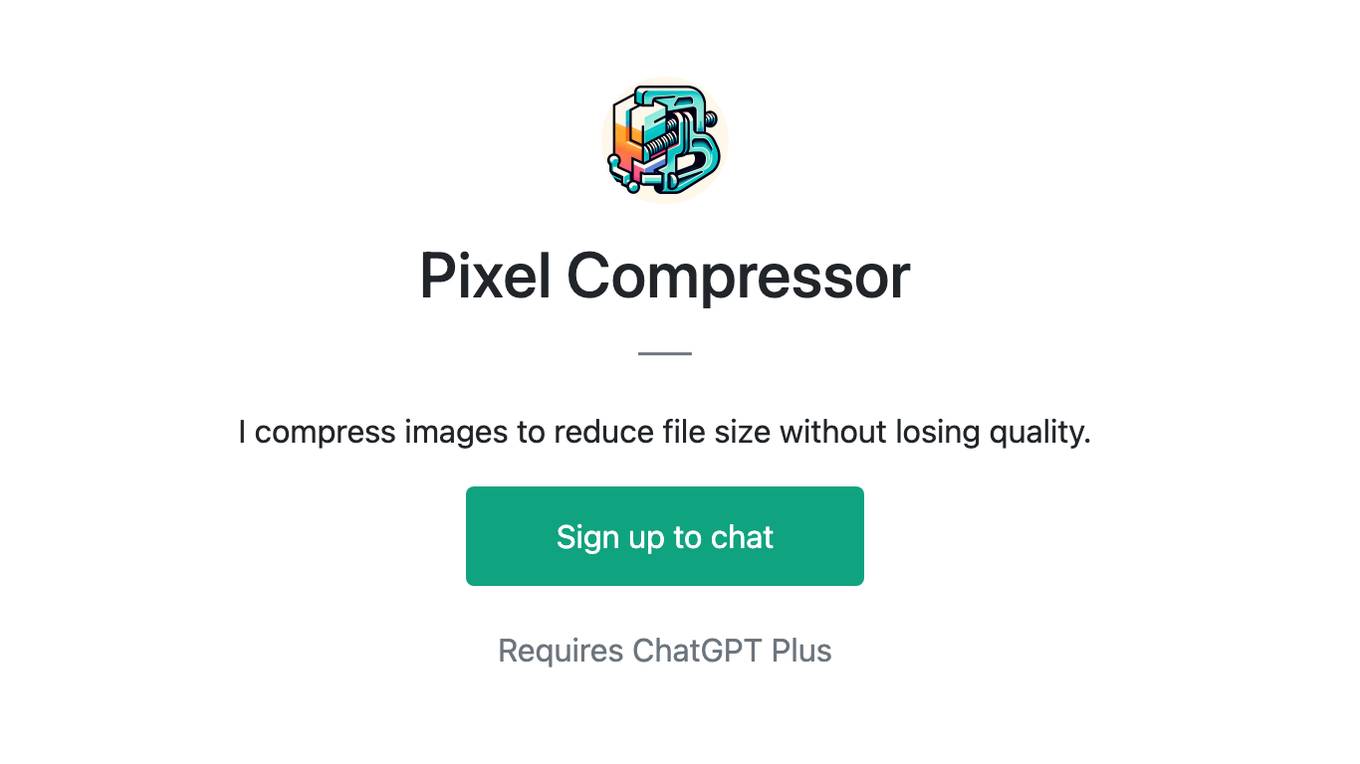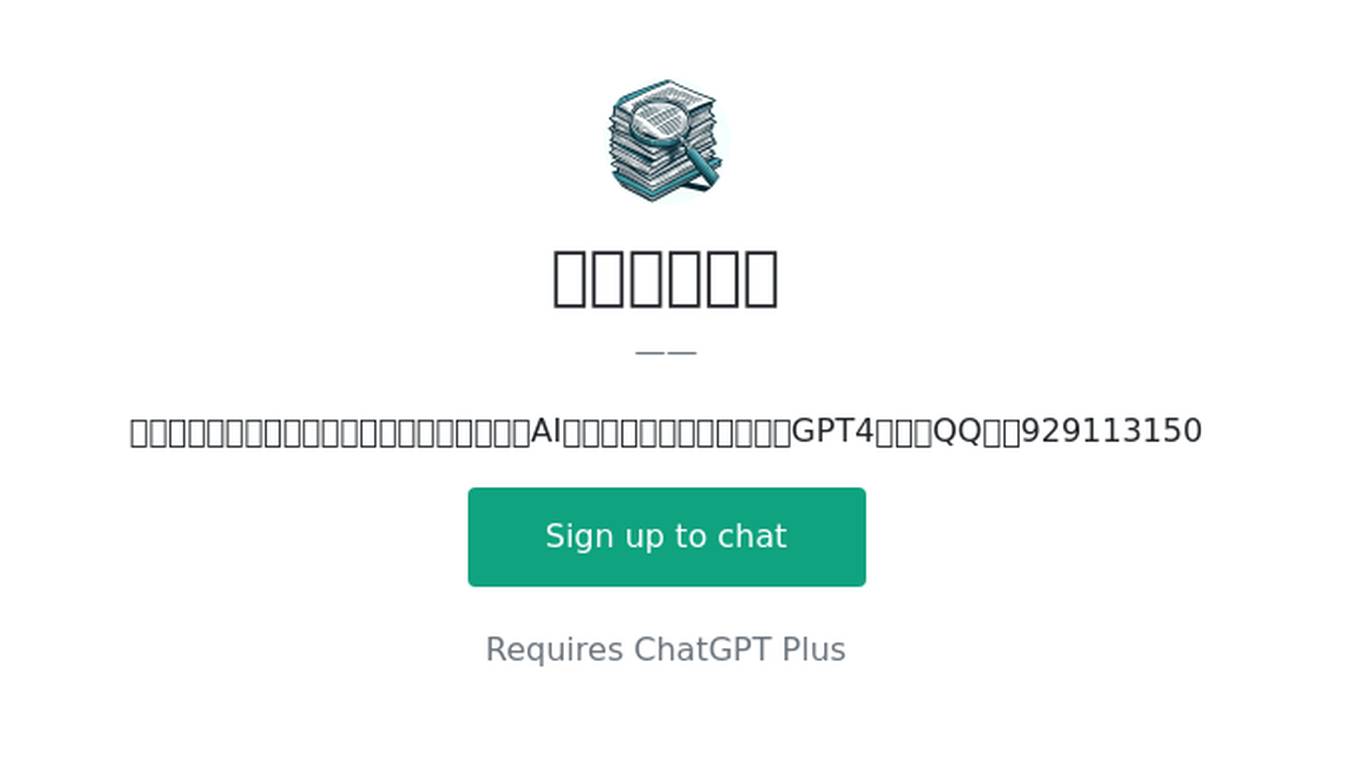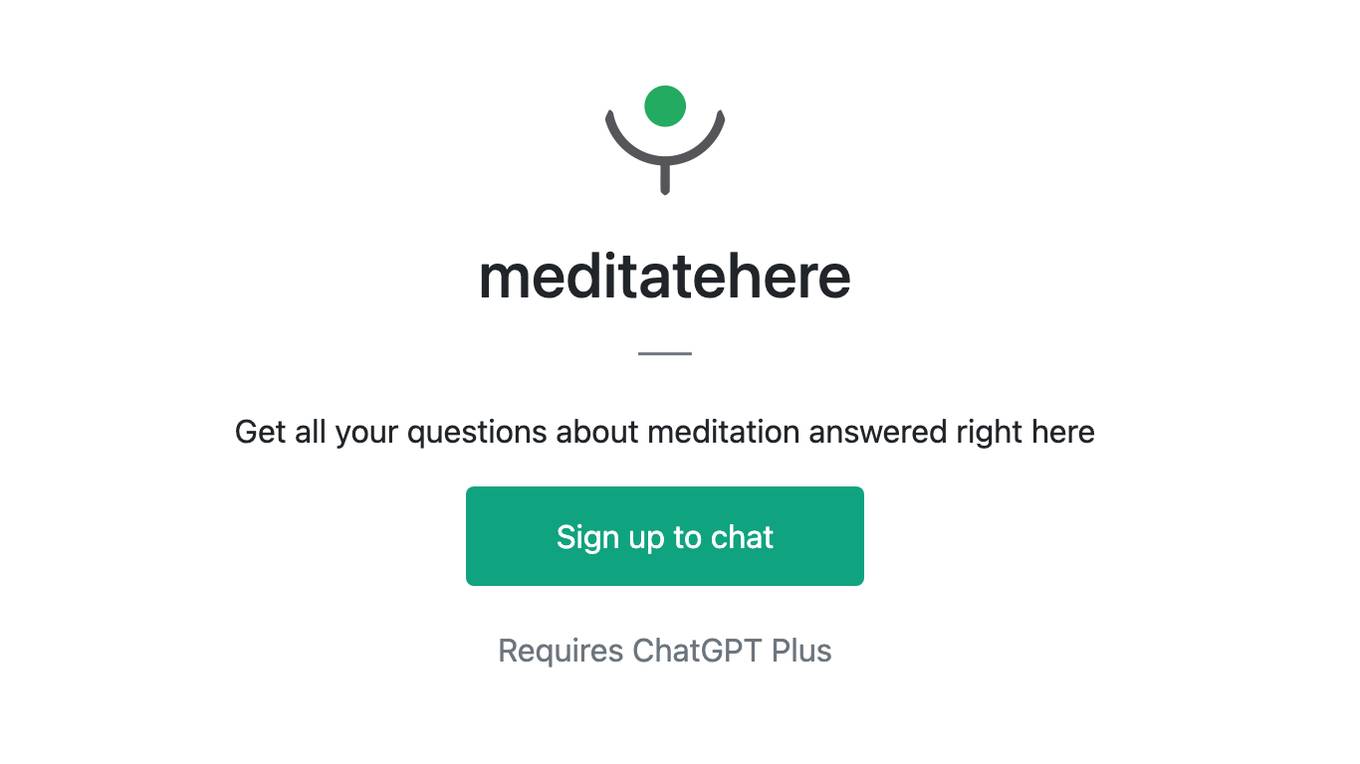Best AI tools for< Reduce Churn >
20 - AI tool Sites
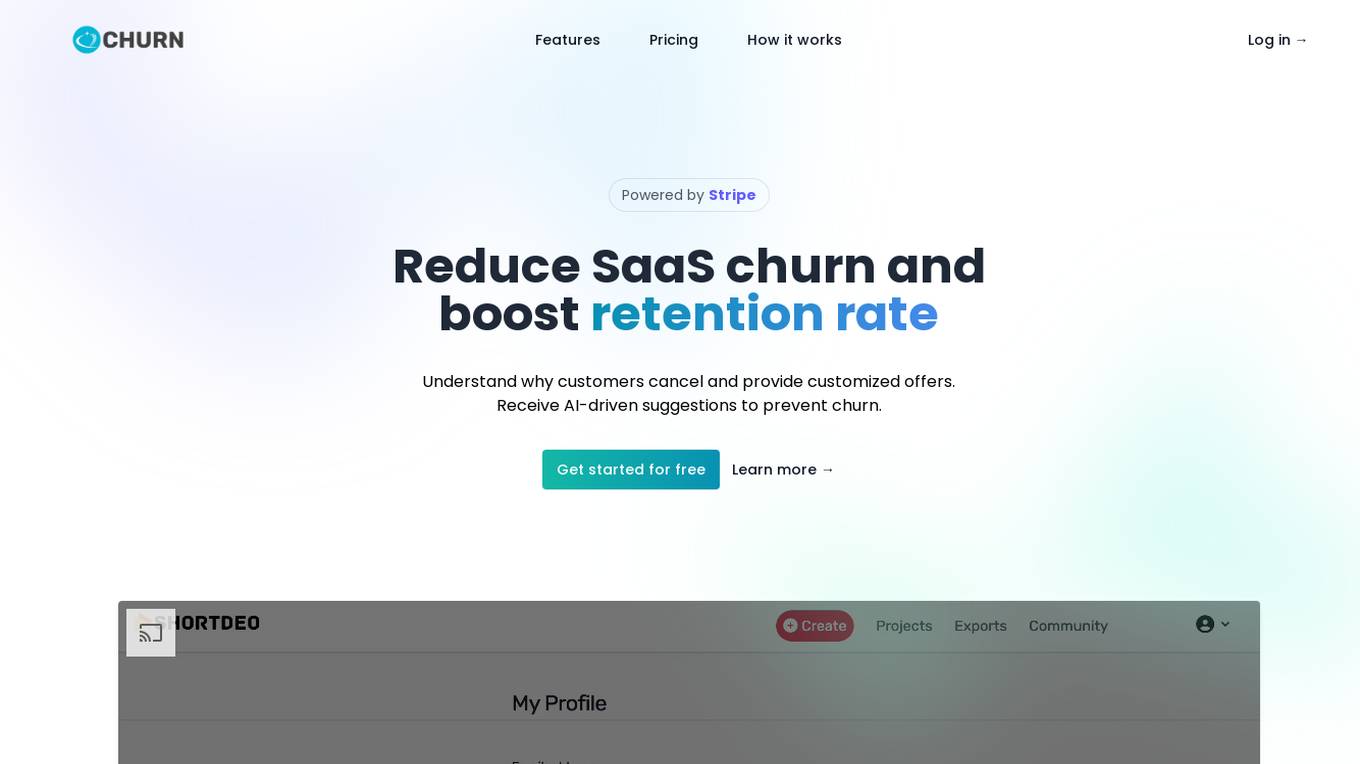
Echurn
Echurn is an AI-driven tool designed to help SaaS businesses reduce churn and increase customer retention. It provides insights, suggestions, and customizable offers to prevent customer cancellations. With effortless integration and affordable pricing, Echurn aims to enhance SaaS MRR and CLV by leveraging advanced technology and data-driven decisions.
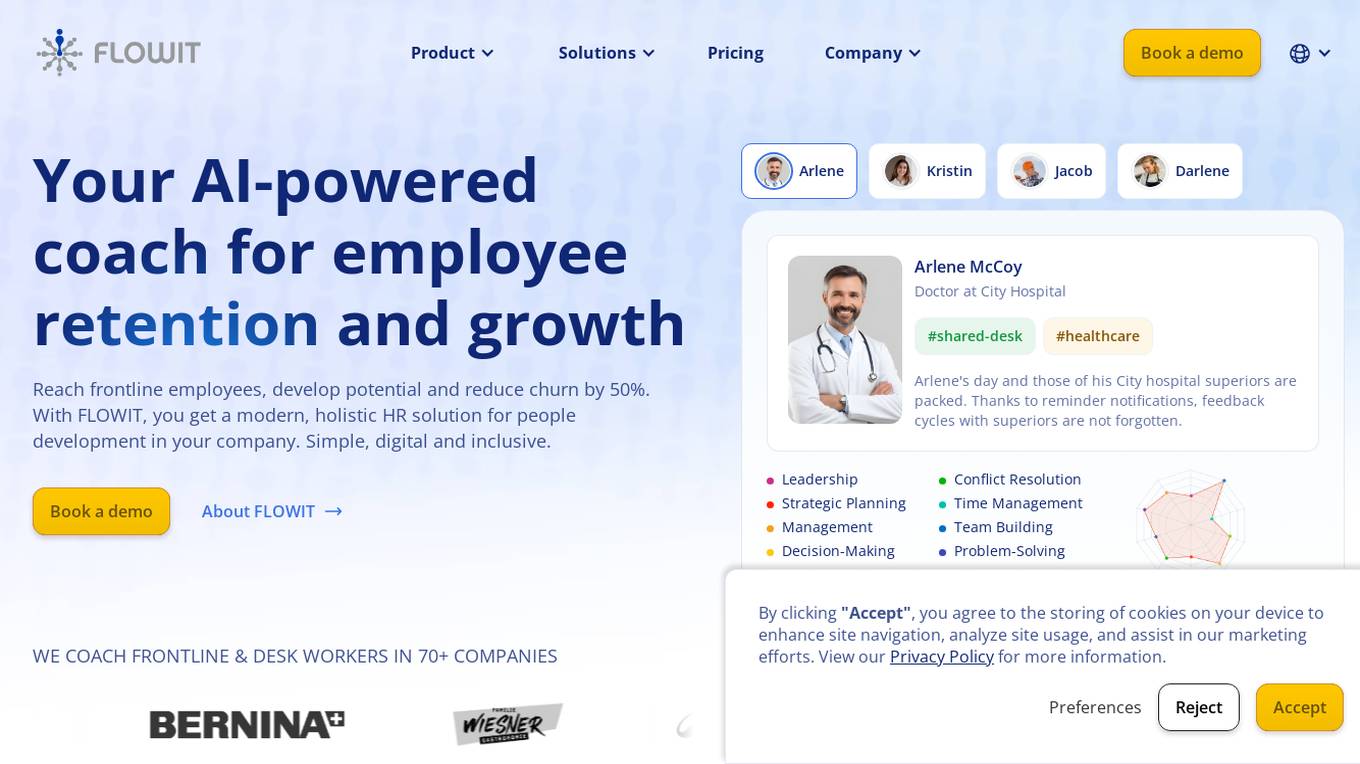
FLOWIT
FLOWIT is an AI-powered coach designed for employee retention and growth. It offers a modern, holistic HR solution for people development in companies, focusing on frontline employees and desk workers. The tool provides personalized goal planning, seamless feedback integration, pulse surveys, and automatic translations in over 100 languages to enhance communication and professional development.
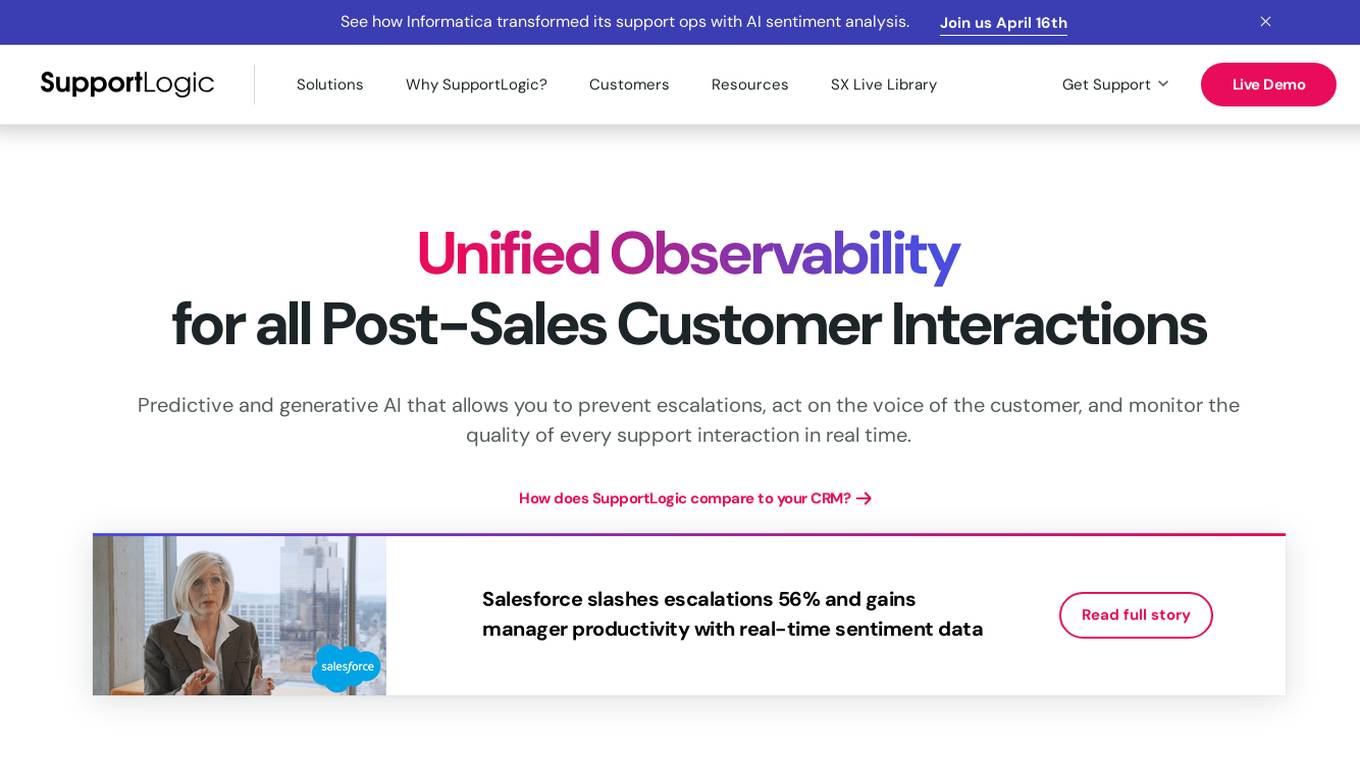
SupportLogic
SupportLogic is a cloud-based support experience management platform that uses AI to help businesses improve their customer support operations. The platform provides a range of features, including sentiment analysis, case routing, and quality monitoring, that can help businesses to identify and resolve customer issues quickly and efficiently. SupportLogic also offers a number of integrations with popular CRM and ticketing systems, making it easy to implement and use.

SupportLogic
SupportLogic is a Support Experience Management Platform that uses AI to help businesses improve their customer support operations. It offers a range of features, including sentiment analysis, backlog management, intelligent case routing, proactive alerts, swarming and collaboration, account health management, customer support analytics, text analytics, SLA/SLO management, quality monitoring and coaching, agent productivity, and translation. SupportLogic integrates with existing ticketing systems and apps, and can be implemented within 45 days.

SiteRecon
SiteRecon is an AI-powered mapping tool designed for landscapers, offering features such as automated takeoffs, site condition reports, job plans, account management, and enhancement proposals. It helps landscapers streamline their sales process, improve productivity, and enhance client relations by providing accurate measurements, detailed site audits, and work reports. SiteRecon aims to revolutionize the landscaping industry by leveraging AI technology to simplify property mapping, estimate generation, and job management, ultimately leading to increased efficiency and profitability for landscaping businesses.
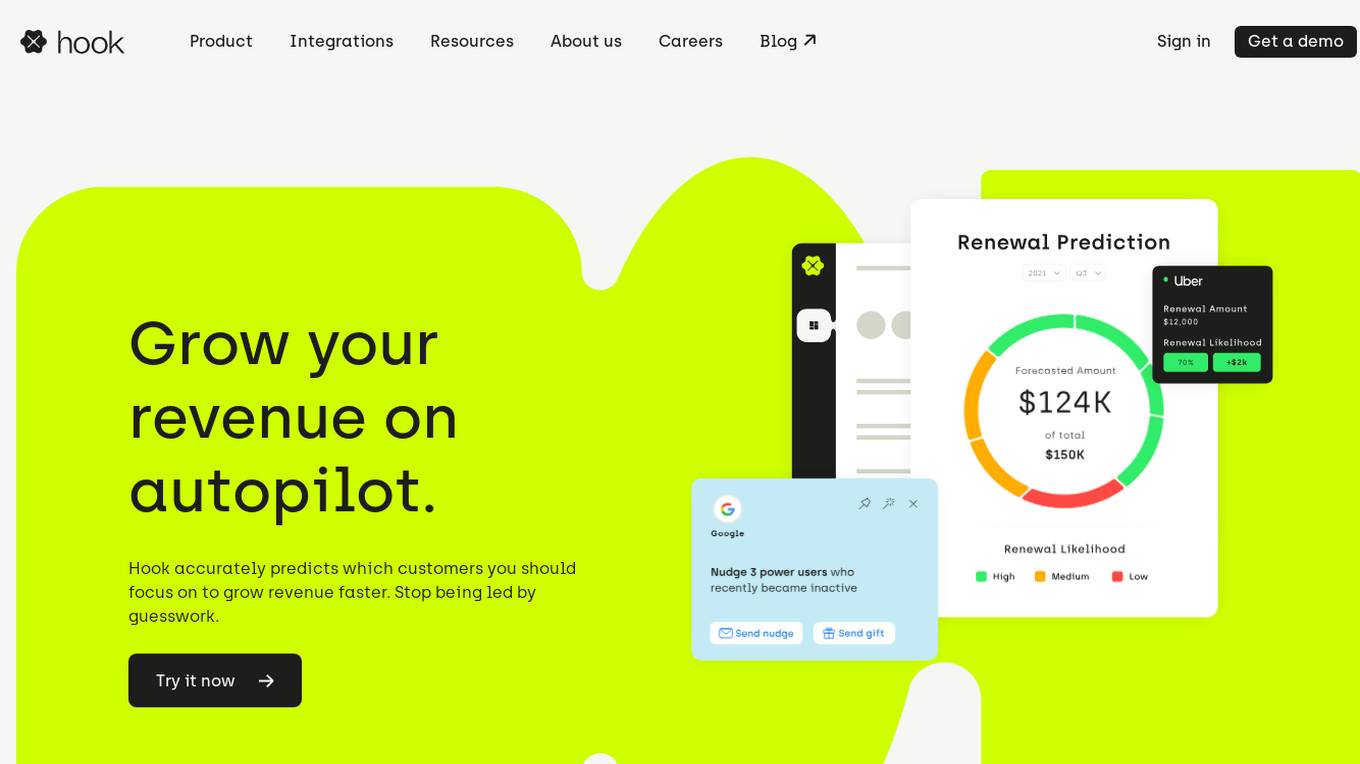
Hook
Hook is an AI-powered platform designed to help businesses grow their revenue by accurately predicting high-value customers, reducing churn, increasing expansion revenue, and actively managing accounts. The platform uses AI to analyze usage patterns and third-party data to prioritize customers for revenue growth and upsells. With a focus on data-driven decision-making, Hook empowers revenue teams to make informed choices and drive business growth.
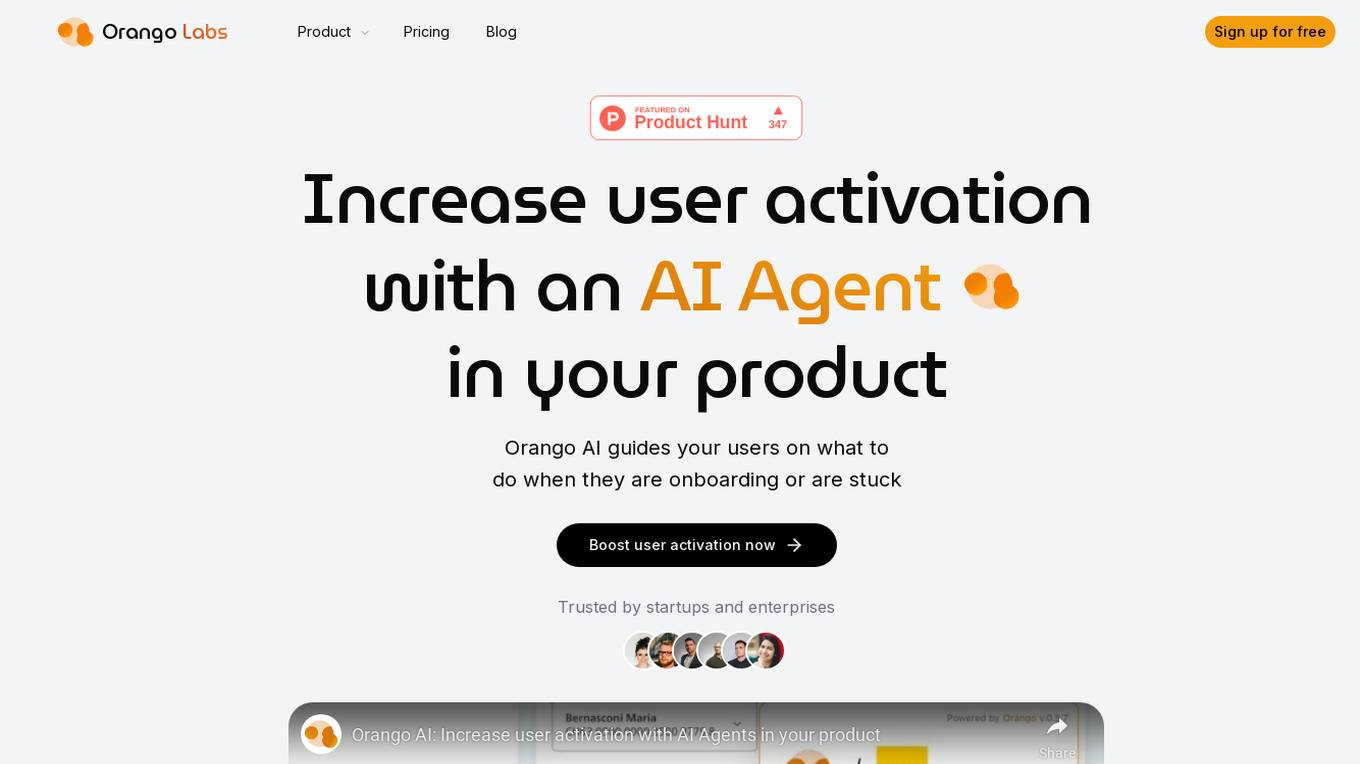
Orango AI
Orango AI is an AI application that provides AI agents for support and onboarding, guiding users through product usage. It offers autonomous UX testing, AI data extraction, and RPA solutions. The application helps increase user activation, reduce churn, and improve user experience by providing real-time guidance and suggestions based on user context and expertise.
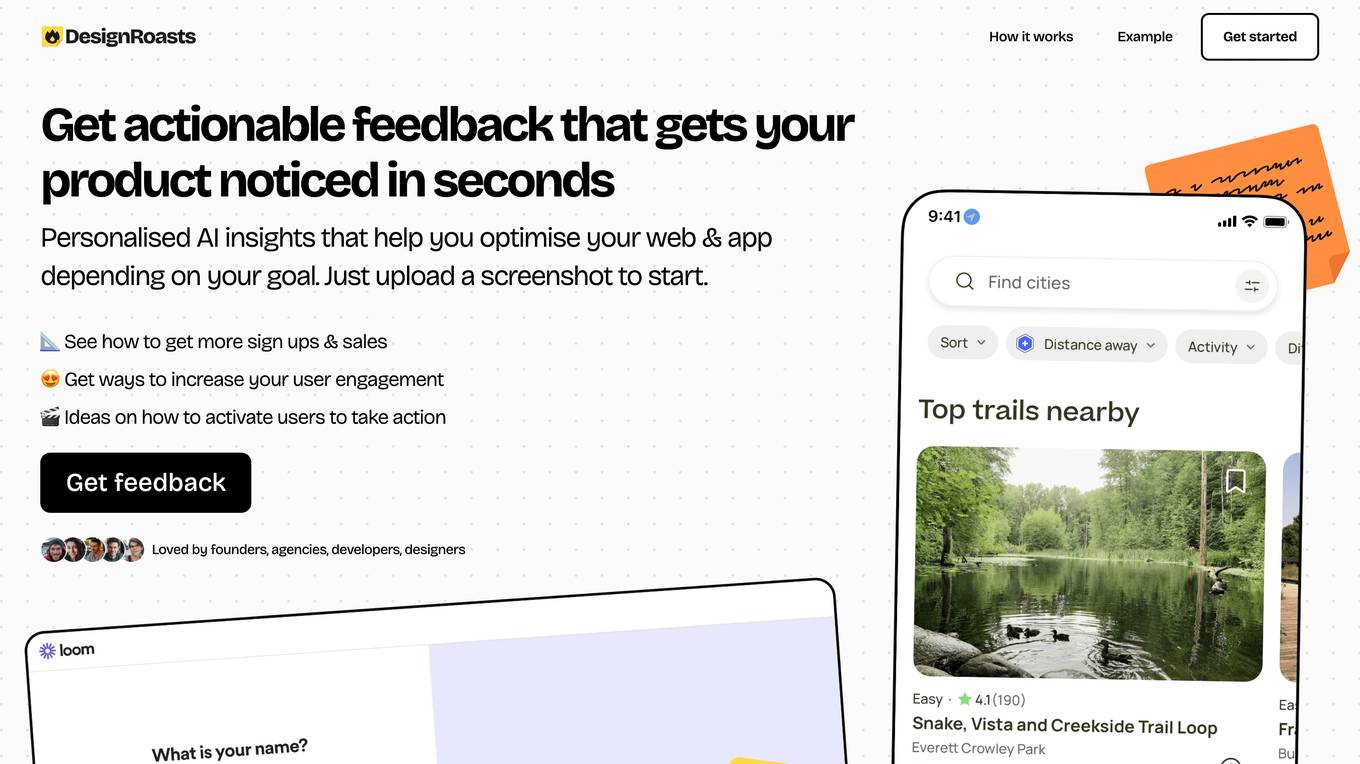
DesignRoasts
DesignRoasts is a web-based tool that provides personalized AI insights to help you optimize your website or app. Simply upload a screenshot of your product and select your goal (e.g., increase conversions, improve onboarding, etc.), and DesignRoasts will generate a list of actionable feedback tailored to your specific needs. The feedback focuses on improving the user experience, visual design, copywriting, and more.

YOMO
YOMO is an AI-powered platform designed to help product teams build products that boost revenue and reduce churn. It offers a suite of tools for collecting feedback, conducting research, collaborating, and organizing information. YOMO leverages AI to provide automated insights, prioritize feedback, and uncover user needs and desires. The platform aims to streamline product development processes and empower teams to make data-driven decisions.

Slicker
Slicker is an AI-powered tool designed to recover failed subscription payments and maximize subscription revenue for businesses. It uses a proprietary AI engine to process each failing payment individually, converting past due invoices into revenue. With features like payment recovery on auto-pilot, state-of-the-art machine learning model, lightning-fast setup, in-depth payment analytics, and enterprise-grade security, Slicker offers a comprehensive solution to reduce churn and boost revenue. The tool is fully transparent, allowing users to inspect and review every action taken by the AI engine. Slicker seamlessly integrates with popular billing and payment platforms, making it easy to implement and start seeing results quickly.
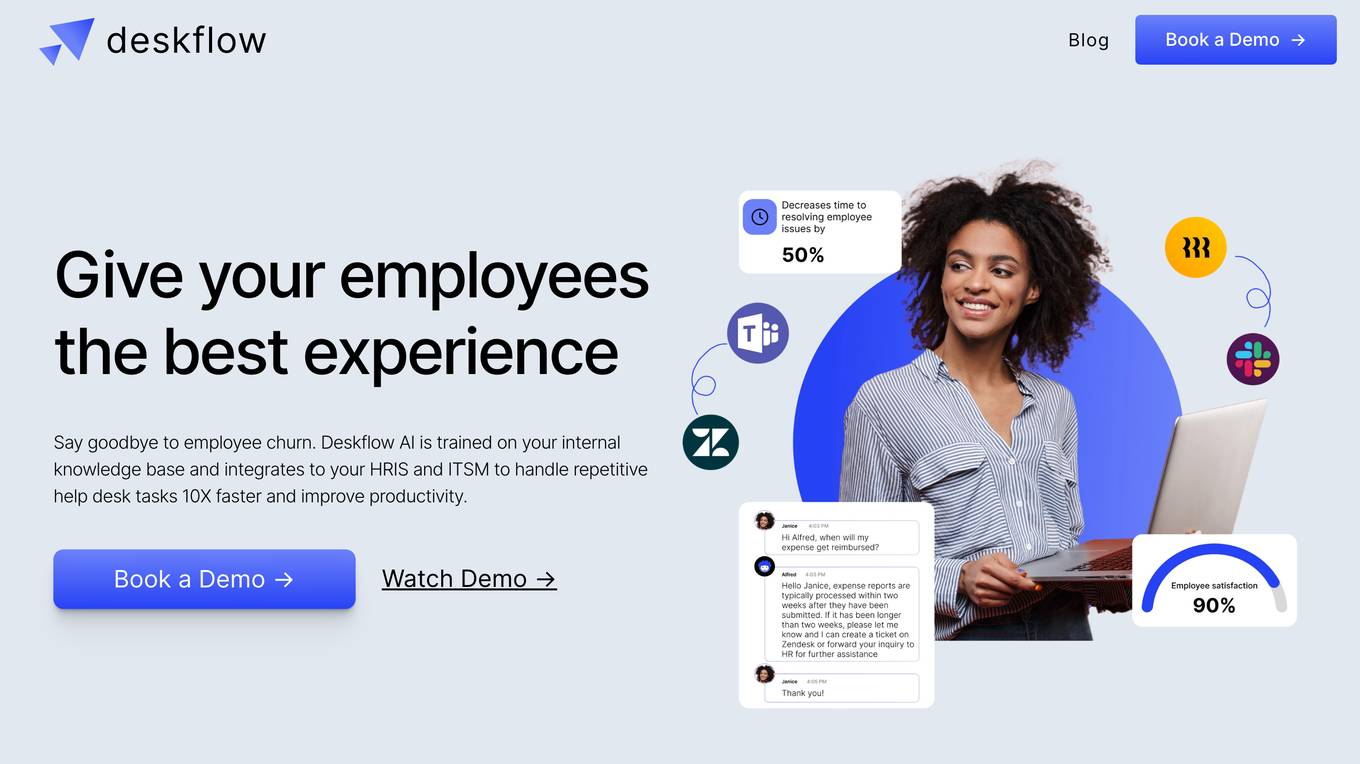
Deskflow
Deskflow is an employee experience platform powered by AI. It is designed to help companies improve employee productivity and reduce churn. Deskflow's AI is trained on a company's internal knowledge base and integrates with HRIS and ITSM systems to handle repetitive help desk tasks 10X faster. This frees up HR and IT teams to focus on more critical tasks, leading to cost savings. Deskflow also provides employees with a co-pilot that can answer questions, create tickets, and take other actions. This helps employees access the information they need quickly and easily, reducing the time it takes to resolve issues.
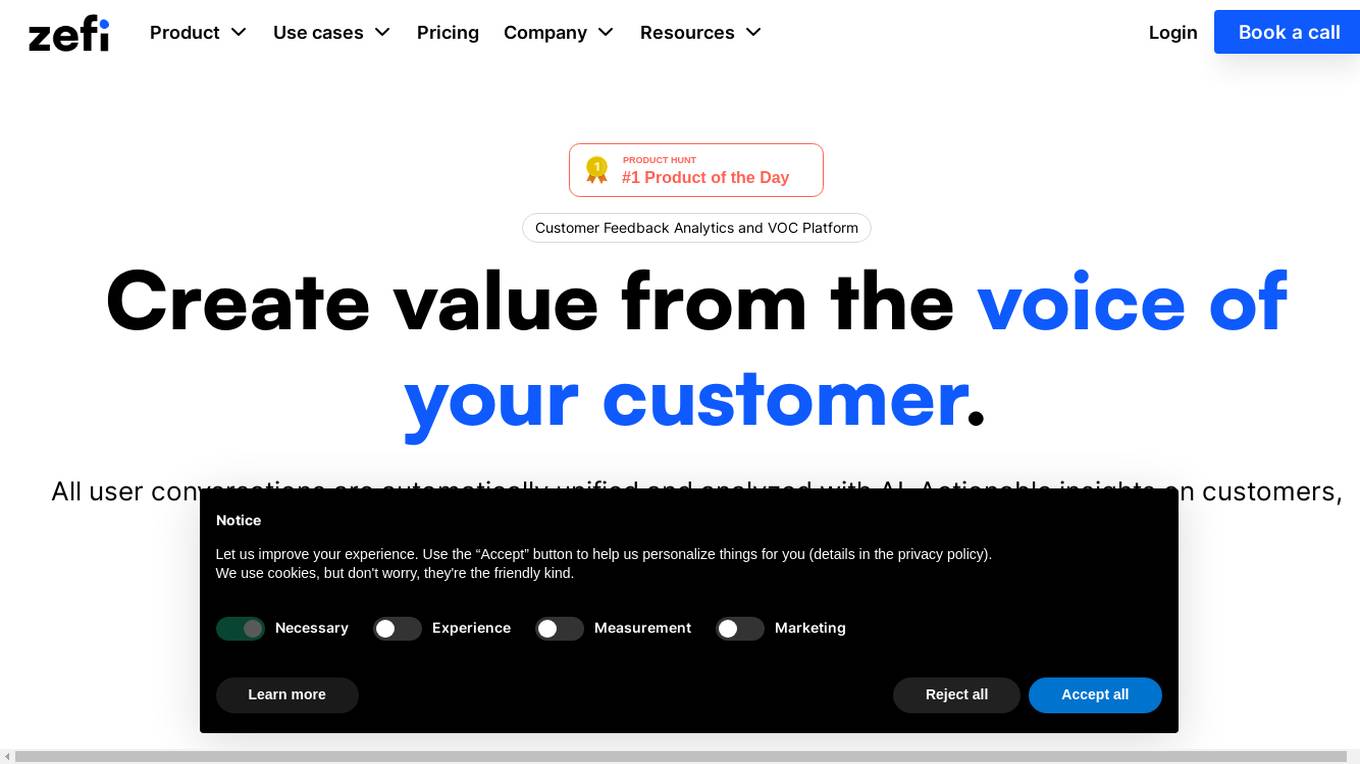
Zefi AI
Zefi AI is an AI-powered platform that transforms users' voices into valuable insights for businesses. It offers in-product surveys and automated health scores to help companies collect, centralize, analyze, and act on user feedback. Zefi AI integrates with popular tools like Google Play Store, Salesforce, and Zendesk, providing a unified feedback overview. The platform helps businesses identify growth opportunities, prioritize roadmaps, reduce churn, and align stakeholders. Zefi AI is trusted by fast-growing companies to streamline feedback analysis, improve customer experience, and drive business growth.
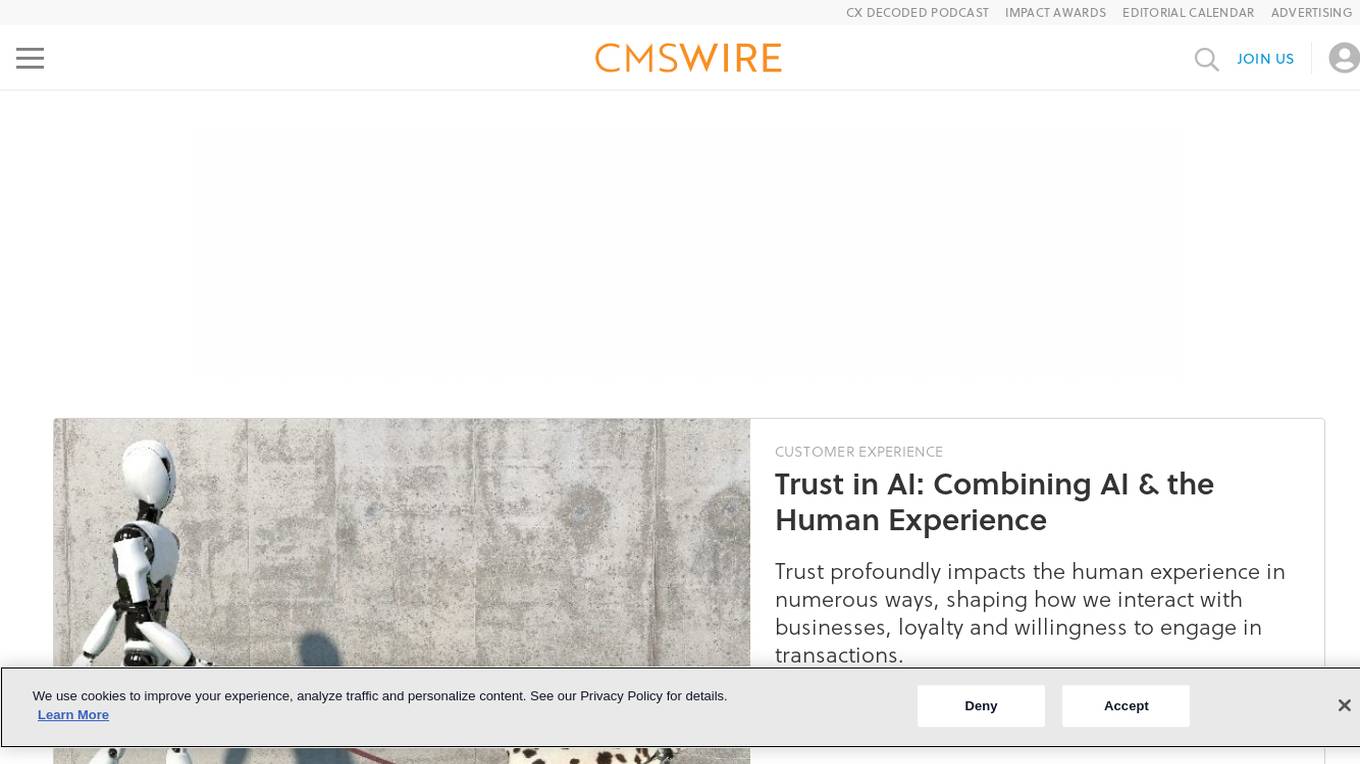
CMSWire
CMSWire is the world's leading community of customer experience professionals, providing the latest news, expert advice, and in-depth analysis on customer-first marketing, commerce, and digital experience design.
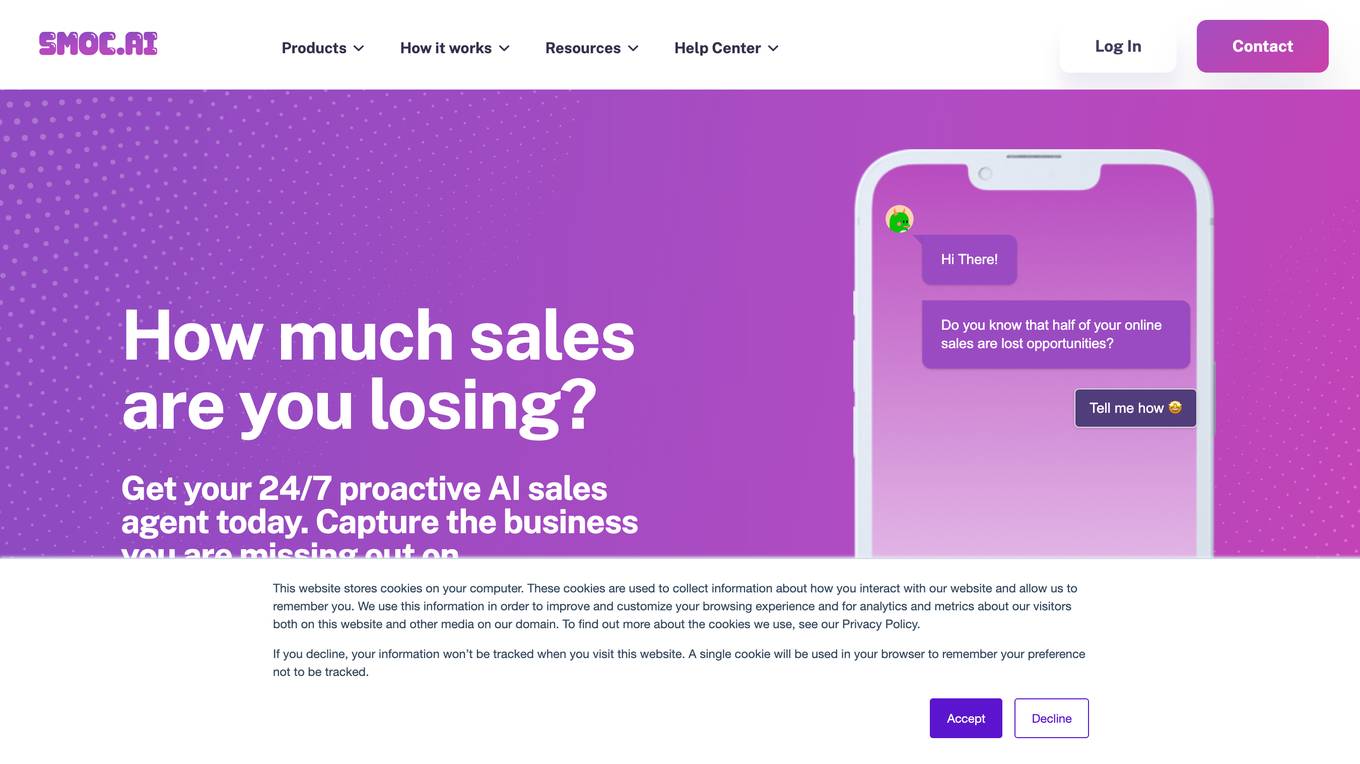
SMOC.AI
SMOC.AI is a digital sales agent that uses AI to help businesses capture leads, convert them into customers, and increase sales. It offers a variety of features, including automated chatbots, personalized flows, and gamification. SMOC.AI is designed to be easy to use and can be integrated with a variety of marketing and sales tools.
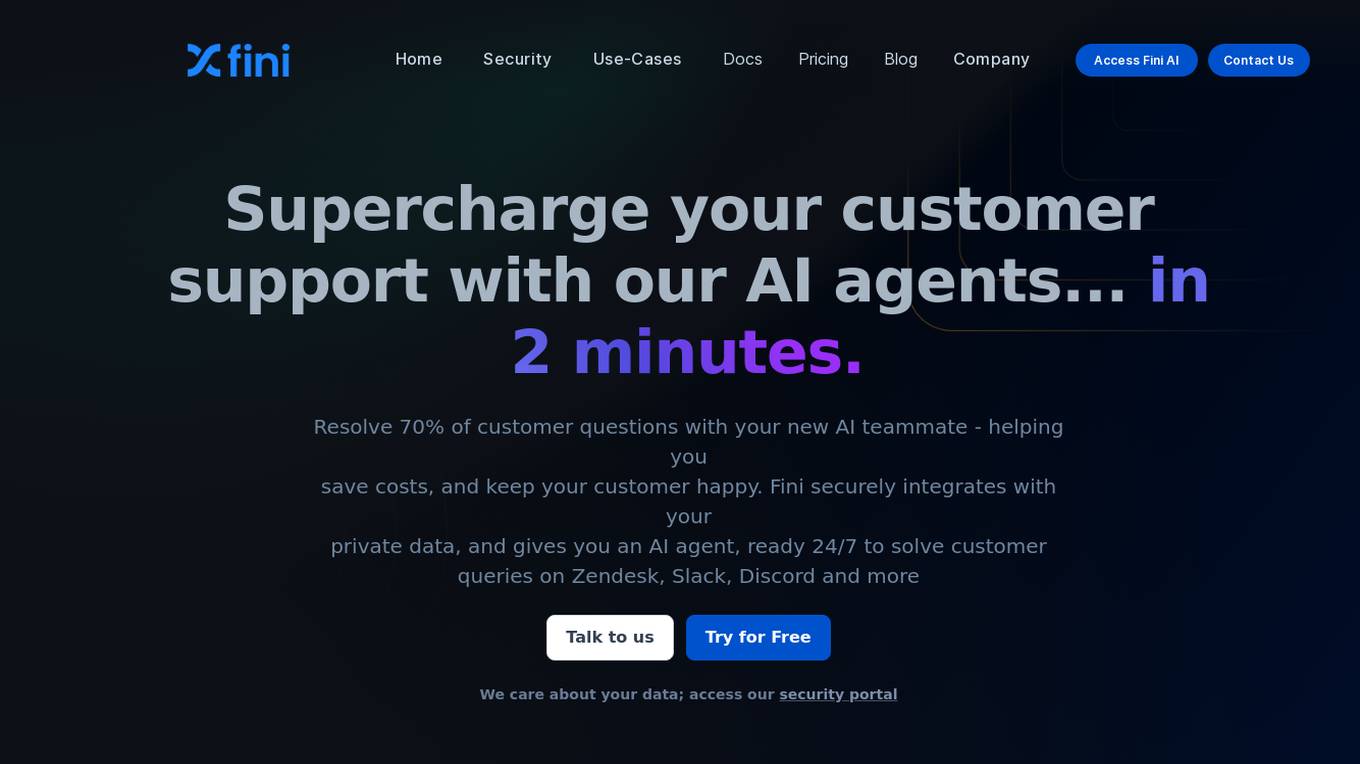
Fini
Fini is an AI application that turns your knowledge base into an AI chat in just 2 minutes. It helps businesses supercharge their customer support by resolving 70% of customer questions with AI agents, saving costs, and keeping customers happy. Fini securely integrates with private data and provides AI agents ready 24/7 to solve customer queries on platforms like Zendesk, Slack, and Discord. It also helps growth teams at PLG companies identify reasons for churn and deliver personalized experiences to retain existing customers.
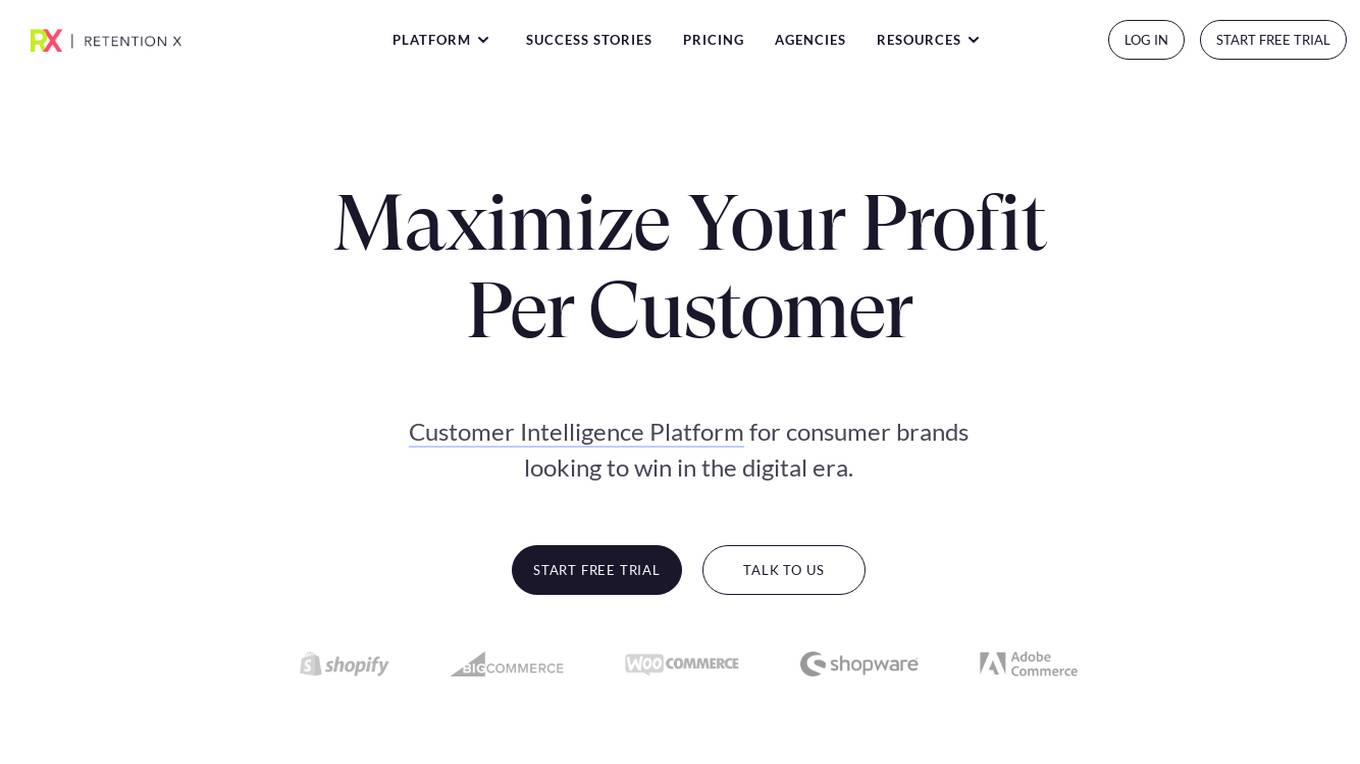
RetentionX
RetentionX is a customer retention platform designed for consumer brands aiming to excel in the digital era. It helps businesses prevent churn, increase retention, optimize acquisition, maximize sell-through, automate workflows, and reduce costs by centralizing customer data and decision-making processes. The platform leverages AI to provide actionable insights, analytics, and segmentation capabilities to enhance customer relationships and drive revenue growth.
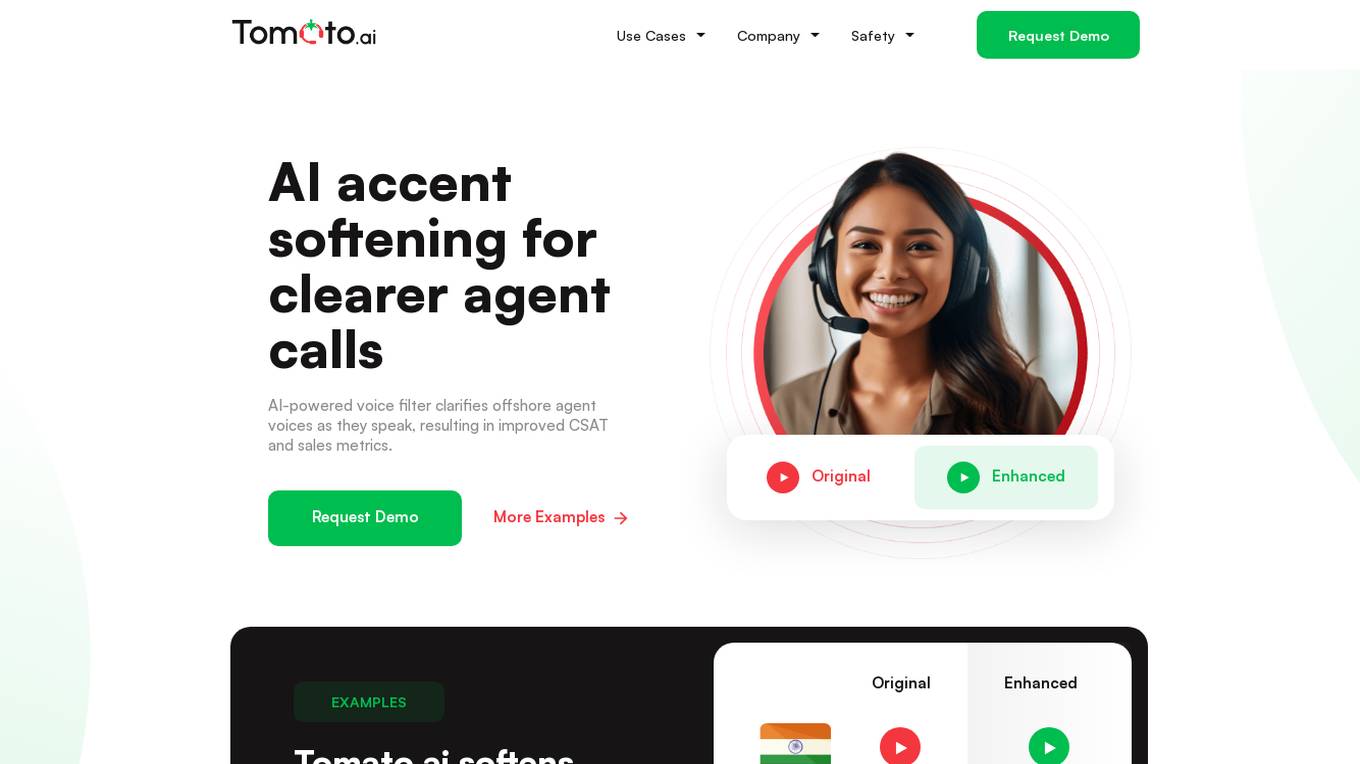
Tomato.ai
Tomato.ai is an AI accent softening and neutralization software designed to improve customer service and sales metrics in call centers. The software uses AI-powered voice filters to clarify offshore agent voices, making them more intelligible and reducing customer frustration. Tomato.ai offers benefits such as improving CSAT, reducing agent churn, boosting savings and sales, and enabling the hiring of more offshore agents. The software works in real-time to soften accents, enhance voice quality, cancel noise, and preserve the natural rhythm of the speaker.

Xound.io
Xound.io is an AI-powered voice cleaner and background noise removal tool designed for content creators, podcasters, YouTubers, TikTokers, and anyone who wants to improve the audio quality of their content. It uses advanced algorithms to remove background noise, enhance vocals, and improve the overall listening experience. Xound.io is easy to use, with a simple drag-and-drop interface and no need for any technical expertise. It also offers a variety of features, including natural pitch correction, AI background noise removal, and high-frequency presence.

Pongo
Pongo is an AI-powered tool that helps reduce hallucinations in Large Language Models (LLMs) by up to 80%. It utilizes multiple state-of-the-art semantic similarity models and a proprietary ranking algorithm to ensure accurate and relevant search results. Pongo integrates seamlessly with existing pipelines, whether using a vector database or Elasticsearch, and processes top search results to deliver refined and reliable information. Its distributed architecture ensures consistent latency, handling a wide range of requests without compromising speed. Pongo prioritizes data security, operating at runtime with zero data retention and no data leaving its secure AWS VPC.
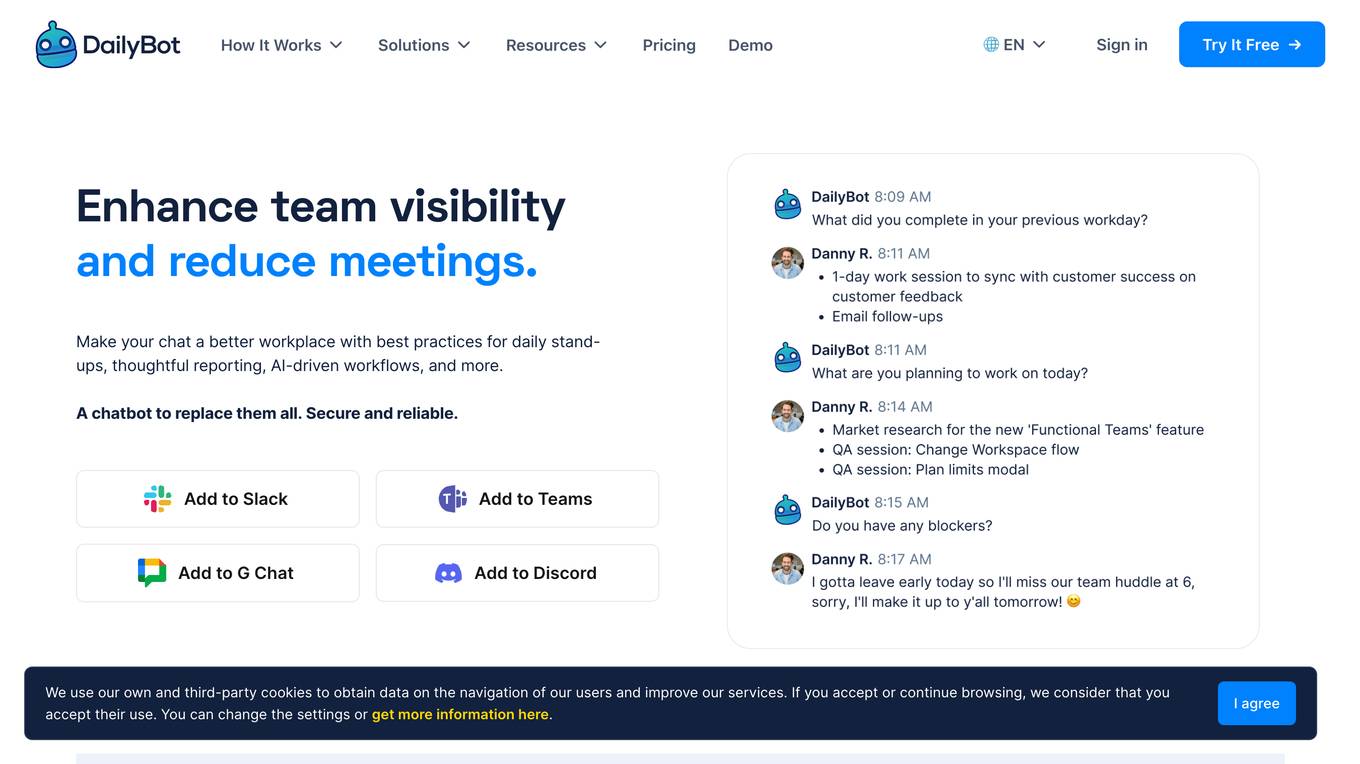
DailyBot
DailyBot is an AI-powered toolkit for teams that want automation, better reporting, and customization. It offers a range of features to enhance team visibility, reduce meetings, and improve collaboration. With DailyBot, teams can run asynchronous standups, retros, and other meetings, send kudos and recognition, create surveys and collect data, and access a variety of add-ons like watercoolers and random coffees. DailyBot also integrates with popular tools like Zapier, Jira, and Trello, making it easy to connect with the tools teams already use. Trusted by leading companies and backed by Y Combinator, DailyBot is a valuable tool for teams looking to improve their collaboration and productivity.
0 - Open Source AI Tools
20 - OpenAI Gpts

Carbon Footprint Calculator
Carbon footprint calculations breakdown and advices on how to reduce it

Eco Advisor
I'm an Environmental Impact Analyzer, here to calculate and reduce your carbon footprint.
Your Business Taxes: Guide
insightful articles and guides on business tax strategies at AfterTaxCash. Discover expert advice and tips to optimize tax efficiency, reduce liabilities, and maximize after-tax profits for your business. Stay informed to make informed financial decisions.
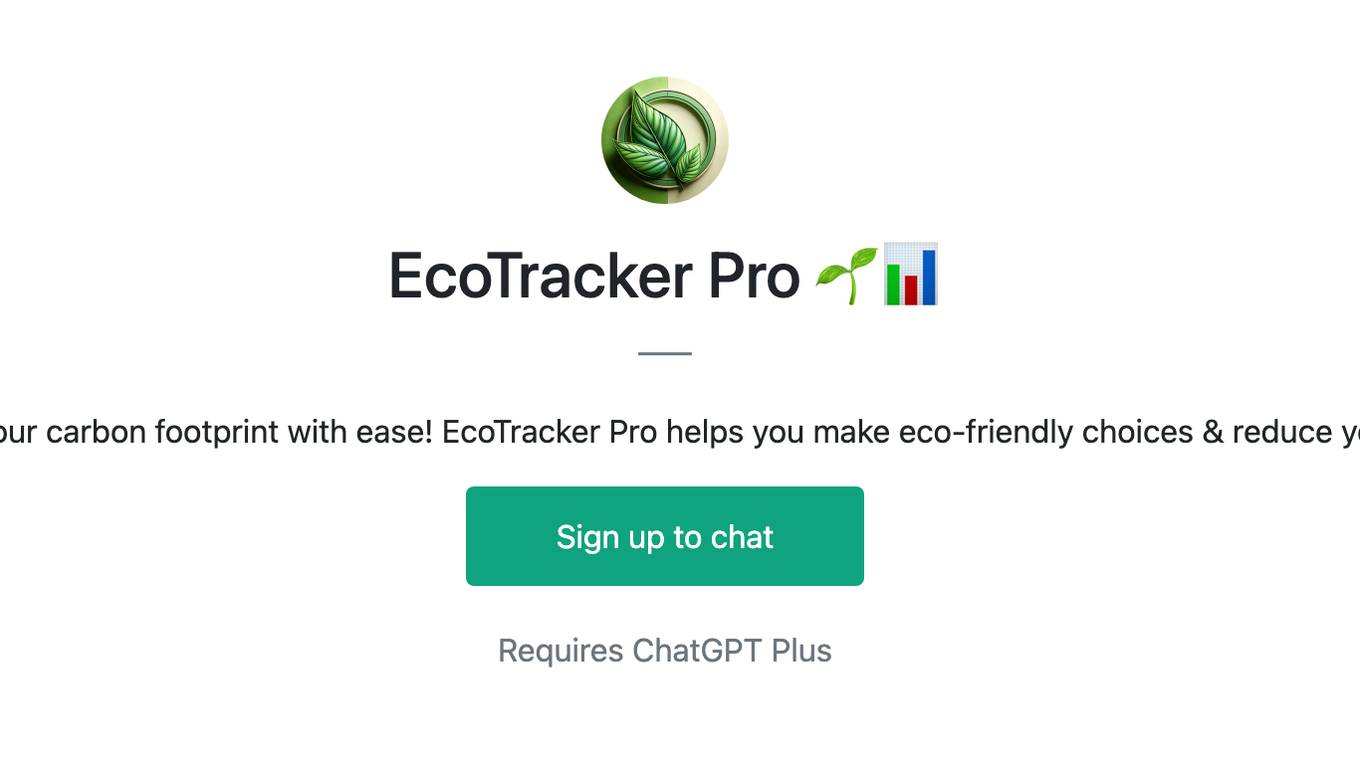
EcoTracker Pro 🌱📊
Track & analyze your carbon footprint with ease! EcoTracker Pro helps you make eco-friendly choices & reduce your impact. 🌎♻️

Tax Optimization Techniques for Investors
💼📉 Maximize your investments with AI-driven tax optimization! 💡 Learn strategies to reduce taxes 📊 and boost after-tax returns 💰. Get tailored advice 📘 for smart investing 📈. Not a financial advisor. 🚀💡
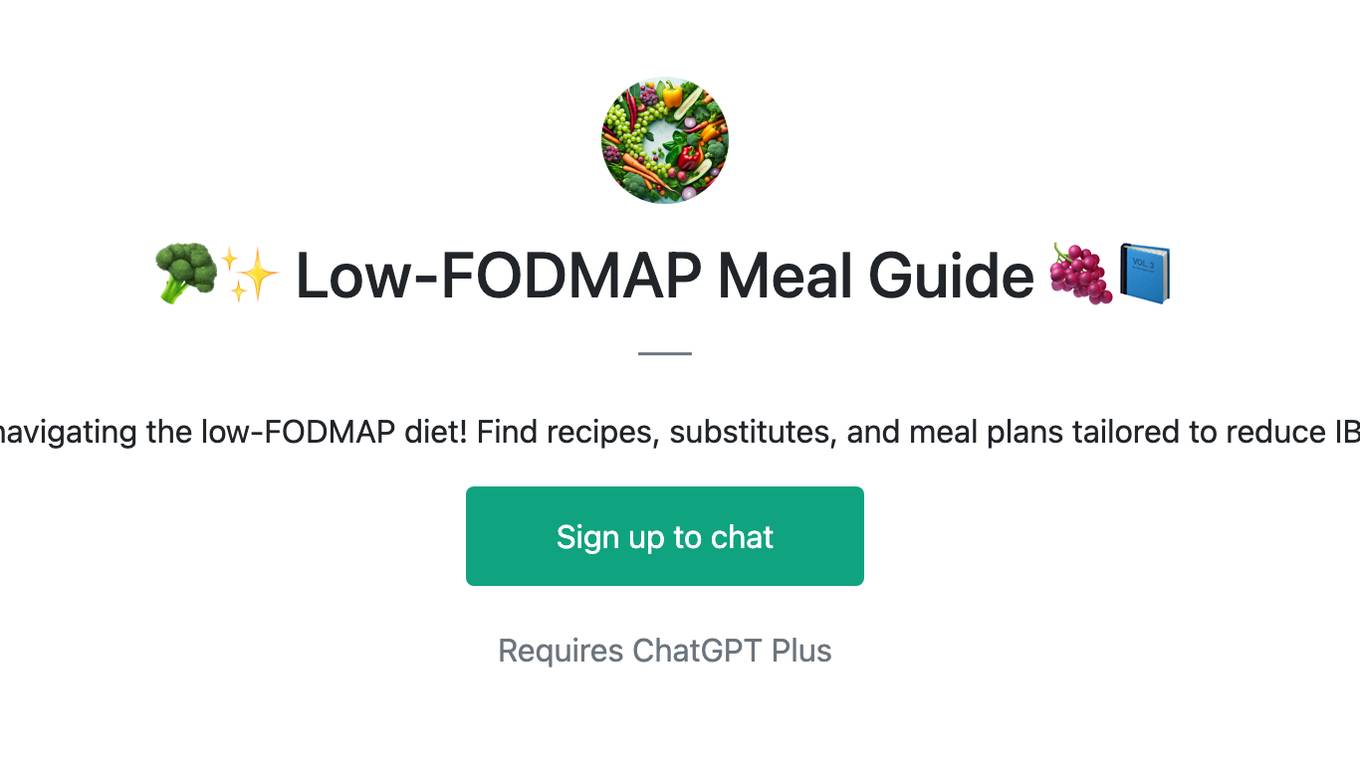
🥦✨ Low-FODMAP Meal Guide 🍇📘
Your go-to GPT for navigating the low-FODMAP diet! Find recipes, substitutes, and meal plans tailored to reduce IBS symptoms. 🍽️🌿
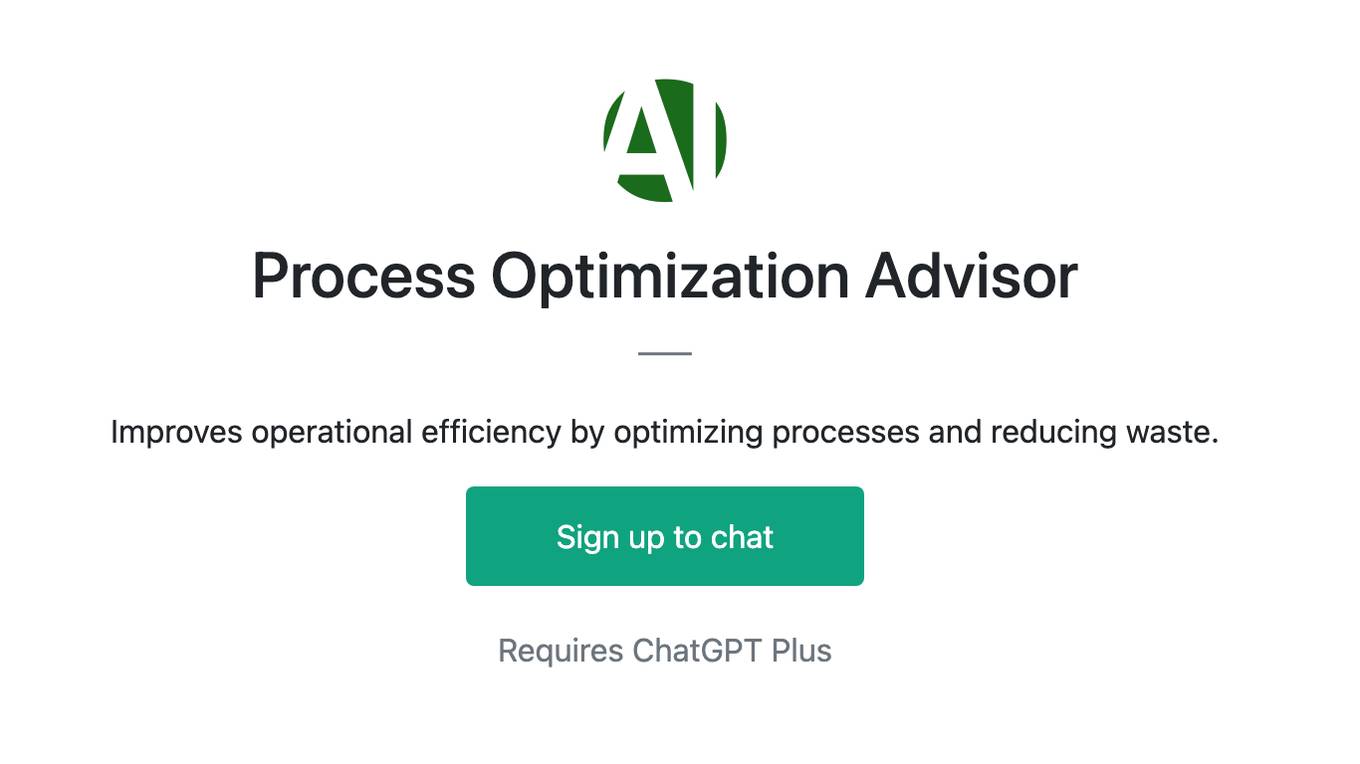
Process Optimization Advisor
Improves operational efficiency by optimizing processes and reducing waste.
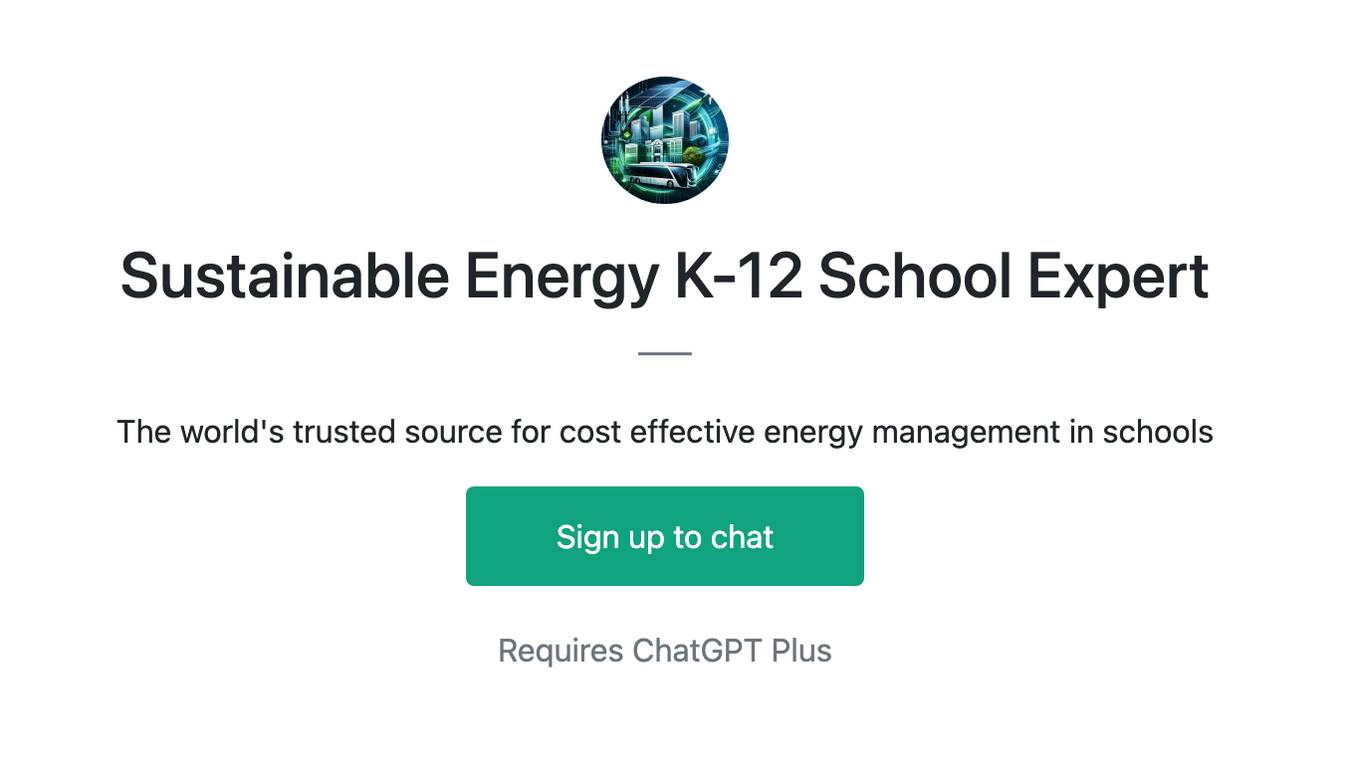
Sustainable Energy K-12 School Expert
The world's trusted source for cost effective energy management in schools

Adorable Zen Master
A gateway to Zen's joy and wisdom. Explore mindfulness, meditation, and the path of sudden awareness through play with this charming friendly guide.

